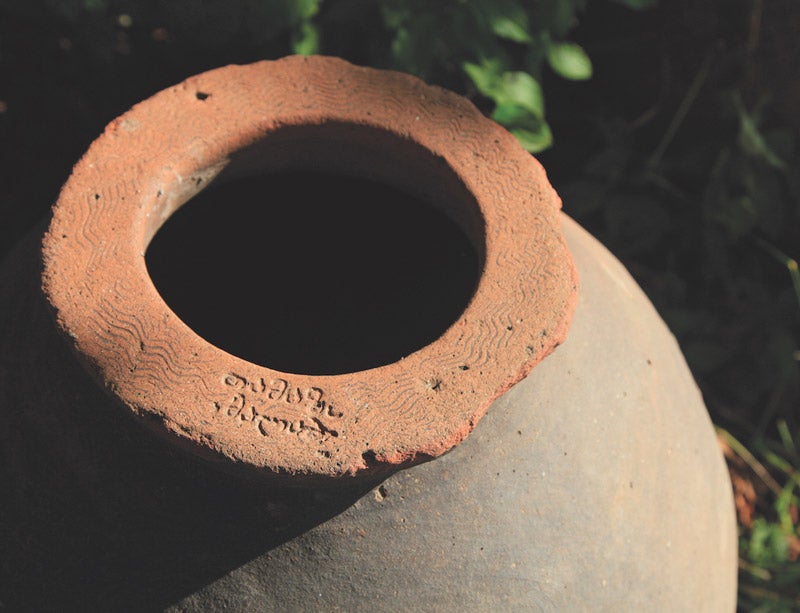
Beyond the romance: A practical and portable guide to Georgia in the round
If there’s a strain of romanticism in the current Western infatuation with Georgian wine, it’s entirely forgivable. Whether it’s the unfathomably ancient (8,000-year) history of winemaking, the 520-odd indigenous grape varieties, or the use of that most fashionable new-old vessel, the qvevri, by winemakers with the tiniest of productions—not to mention the wider context of a naturally beautiful country with a thriving, distinctive, and hitherto overlooked cultural and gastronomic tradition— there is a lot to get romantic about.
Of the flurry of recent books about the country’s wine and food, Carla Capalbo’s Tasting Georgia: A Wine and Food Journey in the Caucasus and Alice Feiring’s For the Love of Wine: My Odyssey Through the World’s Most Ancient Wine Culture are perhaps the best known, and neither shies away from sharing and celebrating the intoxication that most visitors feel—that strange combination of, in Capalbo’s words, the “exotic and the familiar.”
Miquel Hudin and Daria Kholodilina’s mission in Georgia: A Guide to the Cradle of Wine is rather more prosaic. While the odd orientalist flourish is allowed (not least in such tourist-book clichés as the crazy taxi driver and the “city of contrasts”), the book’s primary purpose, as its title suggests, is to get the facts down with, for the most part, straightforward and digestible prose, simple maps, and clean, user-friendly presentation.
In what is now the standard wine-guide style, the first half of the book is devoted to setting out the generalities of Georgian wine, with succinct introductions to its history— from ancient and Biblical times, to the resurgence in the 2000s of the kvevri (the authors prefer to use this spelling rather than the more widely used qvevri since the latter is based on a mistaken translation of the Georgian letter “?”), a development that the authors attribute to a general rise in the quality of home winemaking thanks to the “squalid state” of commercial Georgian wine in the post-Soviet era. The most significant grape varieties are each given their page or half-page due with an accompanying photo, and there’s an informative discussion of the qvevri method (along with a pleasingly tart rebuttal of the idea that the qvevri is synonymous with natural wine).
A brief discussion of the Georgian table leads us into the real meat of the book: the producer profiles, arranged by region. While these vary in quality (perhaps a reflection of the book’s dual authorship) and sometimes feel a little dashed off (there’s an irritating habit of using only the protagonists’ first names in some entries), there’s a heartening commitment to covering the full breadth of the Georgian scene. Large commercial wineries such as the 4-million-bottle-a-year Georgian Wines & Spirits Company are given space alongside the rare mid-sized outfits and, of course, the various luminaries of the qvevri vanguard.
Even these down-to-earth authors concede the latter’s outsize importance in shaping contemporary attitudes to Georgian wine, despite their being responsible for a mere 1–2 percent of its annual production. But if Hudin and Kholodilina can’t resist the romance entirely, their book is above all a useful, practical, and portable guide for those looking to experience it firsthand.
Published by Vinologue; $29 / £22






